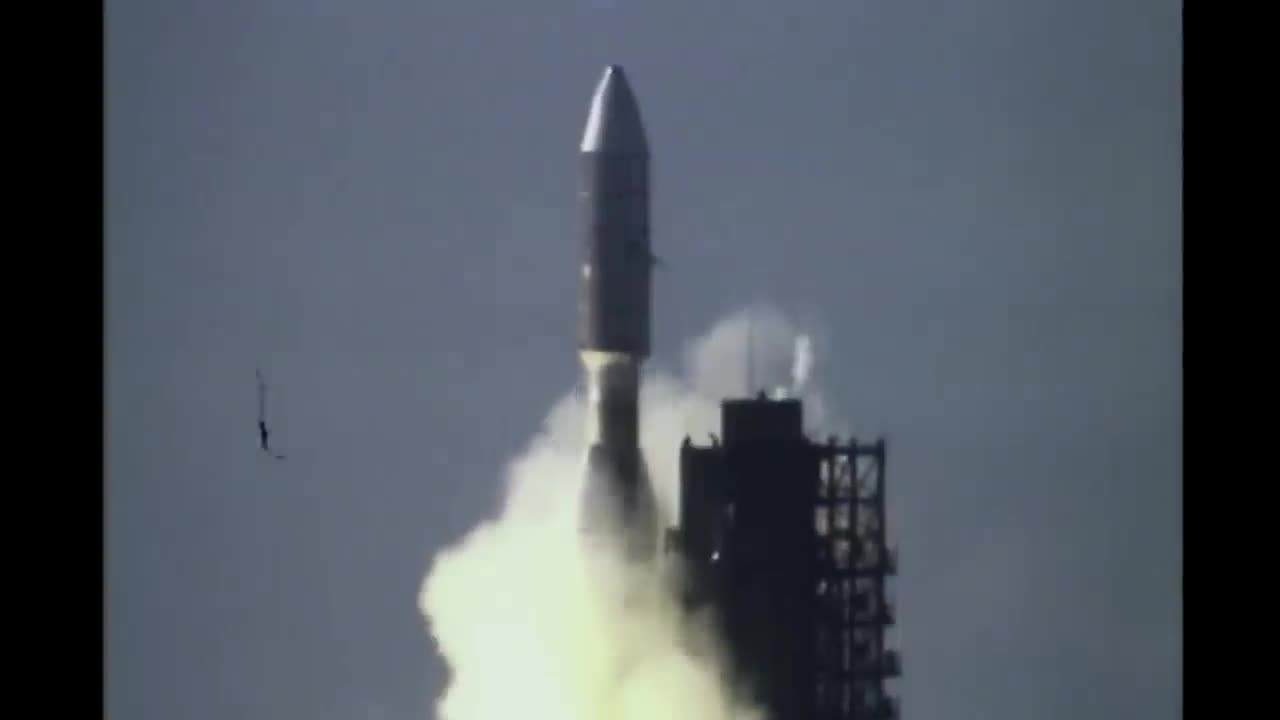Premium Only Content

Nasa 65th Anniversary : A Journey Beyond the Stars
In celebration of NASA's 65th anniversary, we reflect on the remarkable journey of the National Aeronautics and Space Administration, an organization that has reached the stars and beyond from its inception.
On July 29, 1958, President Dwight D. Eisenhower signed the National Aeronautics and Space Act into law, officially establishing NASA. The establishment of the agency was a response to the growing interest in space exploration and the desire to advance scientific understanding, national security, and technological innovation.
Over the past six and a half decades, NASA has become a global leader in space exploration and research, from its early days as the United States' response to the Soviet Union's Sputnik. The organization is responsible for numerous breakthrough achievements, inspiring generations and expanding our understanding of the universe.
From the Mercury and Gemini programs to the Apollo missions that paved the way for human spaceflight that culminated in the historic landing of Apollo 11 on the Moon in 1969, NASA has shown the world what is possible when determination, innovation and teamwork come together. When astronaut Neil Armstrong set foot on the moon, his iconic words, "That's [a] small step for a man, one giant leap for mankind" have gone down in history.
After the Apollo era, NASA continued its mission of exploration with the Space Shuttle Program, which made space more accessible and enabled scientific research, satellite deployment, and construction of the International Space Station (ISS).
The Hubble Space Telescope, launched in 1990, has provided mankind with amazing images and invaluable data, improving our understanding of distant galaxies, stars and planets. Meanwhile, robotic missions such as the Mars rover, the Voyager probe, and the New Horizons spacecraft have expanded our knowledge of the solar system and the cosmos.
NASA's commitment to Earth science is also paramount. Satellites like Terra and Aqua have monitored our planet's climate and provided important information for understanding climate change, while missions like the Kepler Space Telescope have discovered thousands of exoplanets, changing our understanding of the universe and the possibility of extraterrestrial life.
The Artemis program, NASA's ambitious plan to return humans to the Moon and eventually send astronauts to Mars, marks the agency's latest effort. It promises to build on Apollo's legacy and ignite new frontiers of exploration.
NASA's 65th anniversary is a testament to the dedication, vision and passion of the countless scientists, engineers, astronauts and individuals who have contributed to its success. It is also a reminder of the impact of organization on our understanding of the universe, our planet, and our place in the universe.
As we celebrate NASA's 65th anniversary, we look forward to the agency's continued efforts and potential in space exploration, scientific discovery, and technological advancement. NASA's journey is far from over, and its legacy continues to inspire generations of visionaries and explorers around the world
-
 1:17:05
1:17:05
"What Is Money?" Show
1 day agoGary's Economics Explains Money (Badly)
7.48K6 -
 4:08
4:08
Sugar Spun Run
22 hours ago $1.95 earnedChicken Salad
11.1K6 -
 9:00
9:00
The Art of Improvement
18 hours ago $2.75 earnedHow to Break Through Your Fear of Failure
12.9K4 -
 7:18
7:18
DropItLikeItsScott
1 day ago $1.29 earnedWait, What...I Like GLOCK Now??
8.32K2 -
 LIVE
LIVE
Lofi Girl
2 years agoSynthwave Radio 🌌 - beats to chill/game to
741 watching -
 2:32:02
2:32:02
Side Scrollers Podcast
19 hours agoPirateSoftware Situation, Twitch BANS mang0, “White Man Bad” CRASH OUT | Side Scrollers Live
50.1K10 -
 14:17
14:17
GritsGG
15 hours agoCopy Our Strategy We Use to Win & Instantly Improve!
11.9K2 -
 30:44
30:44
The Pascal Show
10 hours ago $2.79 earned‘I Was a Regular at the Freak Offs!’ — Adult Star Testifies in Diddy Trial
15.7K2 -
 1:38:21
1:38:21
TruthStream with Joe and Scott
1 day agoC R Stewart Author of the Britfield book series live 6/26 3pm pacific 6pm Eastern
17.6K1 -
 2:03:51
2:03:51
Inverted World Live
10 hours agoHypersonic Orbs Over New York | Ep. 66
83.6K27